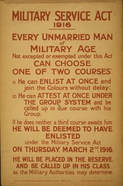Ernest started work at the local colliery at the age of fourteen his brother was to follow him seven years later. By 1911 Ernest was twenty one and Arthur fifteen, together they worked at Monckton Colliery as underground pony drivers for the next eight years until the outbreak of the First World War.
We do not know the exact circumstances of what happened next in the life of Ernest but it can only be described as a tragedy. The story was told to me by my great aunt who I have relied on for most of my information with the later Taylor’s.
“ Uncle Arthur was called up for the army and when his mother found out she was beside herself. Arthur was her favourite, she made it plain that she didn’t want him to go. Uncle Ernie went in his place and was killed by a snipers bullet. His mother on hearing the news of his death never accepted it and for the rest of her life waited for him to return home.”
At the onset of the First World War England had seen many of it young men leave to fight for their country. Many of these men from the coal mining regions joined infantry divisions, it was known that these divisions would incur heavy losses and with the need for more coal, men with skills like Ernest and Arthur were needed at home, even so by end of 1915 over a fifth of all miners had left coal-mining and enlisted in the army. The Defense of the Realm Act was introduced, this allowed government to take over the coal mines, thus stemming the flow of men like Ernest and Arthur leaving an important industry. Also by the end of that year voluntary recruitment had slowed down and many men had decided to stay at home. To compensate for this The Military Service Act was introduced in early 1916, it specified that men from
“18 to 41 years old were liable to be called up for service in the army unless they were married, widowed with children, serving in the Royal Navy, a minister of religion, or working in one of a number of reserved occupations."
A second Act in May 1916 extended liability for military service to married men, and a third Act in 1918 extended the upper age limit to 51.”
Why then did Ernest go to war when he need not? And why was Arthur called up when he shouldn’t have been? Sadly there is no one answer to these questions, it could have been any number of things. Stigma played a big part in recruitment in both wars whole streets were signed up at the same time, it would be obvious if someone didn’t go! But this did not apply to the Taylor's community where everyone was employed in the colliery one way or another or at least fitted into the other exemption categories, there would have been no embarrassment, it was their duty to stay. What we have to remember is that a good job was done by the government pushing patriotism, adventure and ‘German bashing’. Also the rules governing conscription were not strictly adhered to, fourteen and fifteen year olds regularly signed up.
We know that Ernest and Arthur's mother Eliza was devastated when she heard the news about the call up I know from my previous research that she was a single minded, strong willed woman, did she use her powers of persuasion on Ernest as she had on my great grandfather Joseph Taylor years earlier? Was it guilt that caused her to react the way she did when she found Ernest had died, or was it that Ernest simply wanted to protect his younger brother? We will never know what happened but what we do know is that their lives were shattered.
Arthur lived into his seventies, he never married and never moved away from home.


 RSS Feed
RSS Feed
